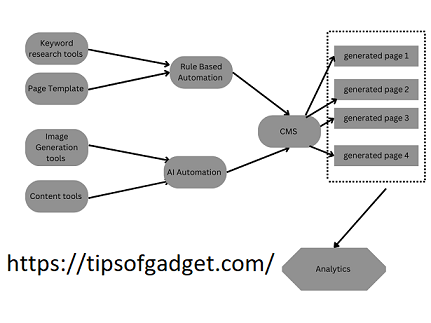Generative Search Optimization: Whether you’re a beginner or an advanced SEO expert, understanding GEO will give you a competitive edge in 2025 and beyond.
What is GEO in SEO?
GEO in SEO stands for Geographic Search Engine Optimization. It focuses on optimizing a website or content to target users in specific locations. GEO SEO helps businesses appear in local search results by using location-based keywords, Google Business Profile listings, and localized content. For example, a bakery in New York would use terms like “best bakery in New York” to attract nearby customers. GEO SEO is crucial for local businesses, improving visibility, driving foot traffic, and increasing conversions. It also helps search engines understand where your business is located and which audience you want to reach, enhancing relevance in search results.
How to optimize content for AI-generated answers?
GEO in SEO To optimize content for AI-generated answers, focus on clear, concise, and structured writing. Use specific keywords and phrases that align with common user queries. Format content using headings, bullet points, and FAQs to make it easy for AI to extract relevant information. Include definitions, step-by-step guides, and authoritative sources. Use natural language and avoid jargon to align with how people search. Keep paragraphs short and informative. Update content regularly to maintain accuracy and relevancy. Providing direct, well-organized answers increases the chance your content will featured in AI responses across platforms like Google’s SGE, Bing Chat, or ChatGPT’s web browsing tools.

Why Generative Search Optimization is the future?
Generative Search Optimization (GSO) is reshaping how we approach online visibility. Unlike traditional SEO, which focuses on keywords and backlinks, GSO adapts content for AI-driven answers from tools like ChatGPT, Gemini, or Copilot. As search engines evolve into conversational platforms, users rely more on summarized, AI-generated insights. This shift demands content that is structured, clear, and deeply informative. GSO ensures your content is discoverable and preferred by generative AI, increasing relevance in future search results. Embracing GSO now is essential to staying competitive in the AI-powered search landscape ahead.
GEO vs Traditional SEO: A Modern Optimization Comparison
GEO in SEO Traditional SEO focuses on improving a website’s visibility through keywords, backlinks, and content relevance across global or national search results. GEO is designed for AI-driven platforms like ChatGPT and Google’s SGE, aiming to optimize content for AI-generated answers. While traditional SEO targets human search behavior on SERPs, GEO adapts for machine understanding and context-based responses. The shift towards GEO is driven AI assistants replacing classic search engines. Both are approaches can work together—traditional SEO builds authority, while GEO ensures AI engines recognize and surface your content in dynamic, conversational queries.
Why is GEO in SEO important for businesses?
GEO, or Geographic Search Engine Optimization, is crucial for businesses because it helps them connect with local customers effectively. By targeting location-specific keywords and optimizing online presence for particular areas, businesses can appear in local search results, driving more relevant traffic. This local focus increases the chances of attracting customers nearby who are ready to buy or use services. GEO also enhances visibility on platforms like Google Maps and local directories, building trust and credibility within the community. Ultimately, GEO helps businesses compete better in their markets, boost sales, and improve customer engagement by delivering tailored content based on geographic location.
Introduction GEO in SEO
According to above details of Generative Search Optimization (GSO) is the future of SEO, focusing on optimizing content specifically for AI-driven search engines and generative AI results. Unlike traditional GEO in SEO, which targets keywords and backlinks, GSO emphasizes creating high-quality, context-rich content that AI can easily understand and generate answers from. This includes structured data, clear intent alignment, and natural language that matches user queries. By optimizing for generative search, websites improve their chances of being featured in AI-powered answer boxes, voice searches, and chatbots. Embracing GSO helps businesses stay ahead in the evolving search landscape, driving organic traffic and enhancing user experience.













Leave a Reply